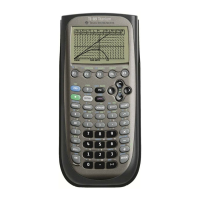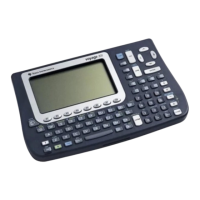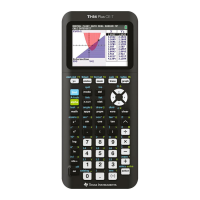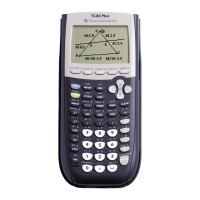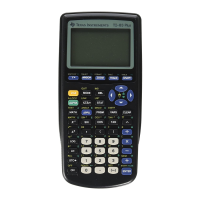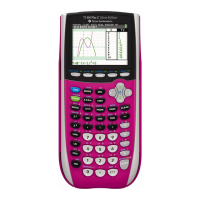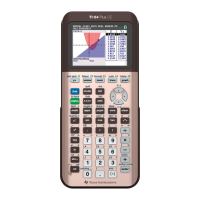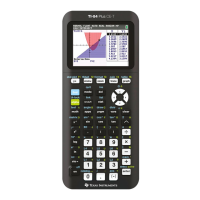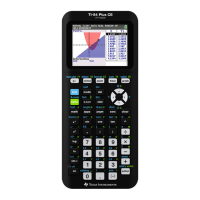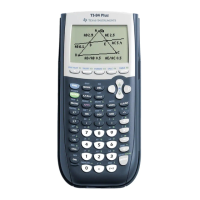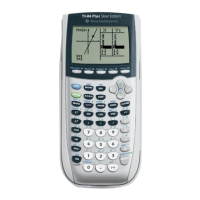Appendix A: Functions and Instructions 861
tCollect() MATH\Algebra\Trig menu
tCollect(
expression1
) ⇒
expression
Returns an expression in which products and
integer powers of sines and cosines are converted
to a linear combination of sines and cosines of
multiple angles, angle sums, and angle differences.
The transformation converts trigonometric
polynomials into a linear combination of their
harmonics.
Sometimes
tCollect()
will accomplish your goals
when the default trigonometric simplification does
not.
tCollect()
tends to reverse transformations
done by
tExpand()
. Sometimes applying
tExpand()
to a result from
tCollect()
, or vice versa, in two
separate steps simplifies an expression.
tCollect((cos(a))^2)
¸
cos(2ø a) + 1
2
tCollect(sin(a)cos(b))
¸
sin(aì b)+sin(a+b)
2
tExpand() MATH\Algebra\Trig menu
tExpand(
expression1
) ⇒
expression
Returns an expression in which sines and cosines
of integer-multiple angles, angle sums, and angle
differences are expanded. Because of the identity
(sin(x))
2
+(cos(x))
2
=1, there are many possible
equivalent results. Consequently, a result might
differ from a result shown in other publications.
Sometimes
tExpand()
will accomplish your goals
when the default trigonometric simplification does
not.
tExpand()
tends to reverse transformations
done by
tCollect()
. Sometimes applying
tCollect()
to a result from
tExpand()
, or vice versa, in two
separate steps simplifies an expression.
Note: Degree-mode scaling by
p
/180 interferes with
the ability of
tExpand()
to recognize expandable
forms. For best results,
tExpand()
should be used
in Radian mode.
tExpand(sin(3f))
¸
4ø sin(f)ø (cos(f))ñìsin(f)
tExpand(cos(aì b))
¸
cos(a)ø cos(b)+sin(a)ø sin(b)
Text CATALOG
Text
promptString
Displays the character string
promptString
dialog box.
If used as part of a
Dialog...EndDlog block
,
promptString
is displayed inside that dialog box. If
used as a standalone instruction,
Text
creates a
dialog box to display the string.
Text "Have a nice day."
¸
Done
Then See If, page 805.
timeCnv() CATALOG
timeCnv(
seconds
) ⇒
list
Converts seconds to units of time that can be more
easily understood for evaluation. The list is in
{
days,hours,minutes,seconds
} format.
Note: See also
checkTmr()
and
startTmr()
.
timeCnv(152442117)
{1764 9 1 57}
